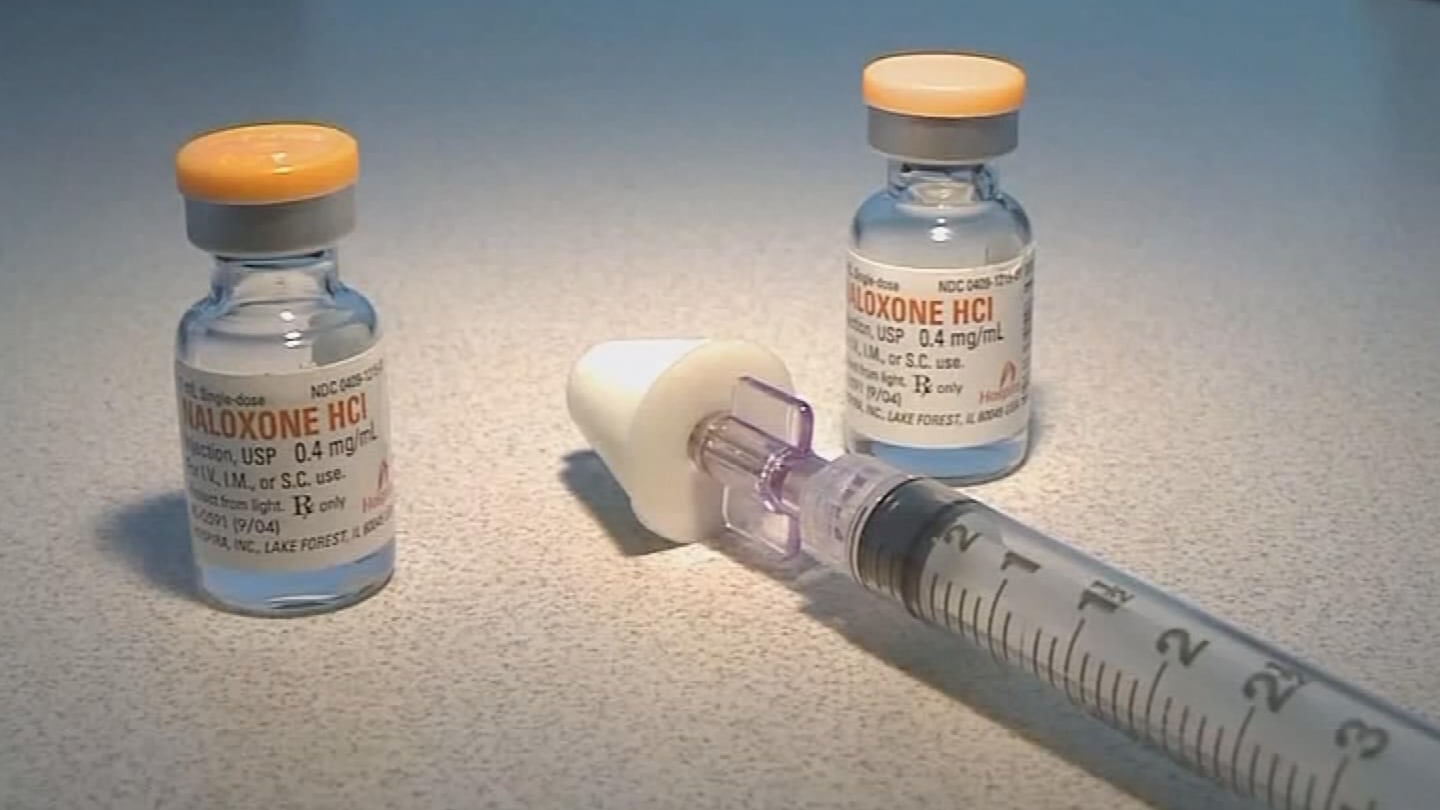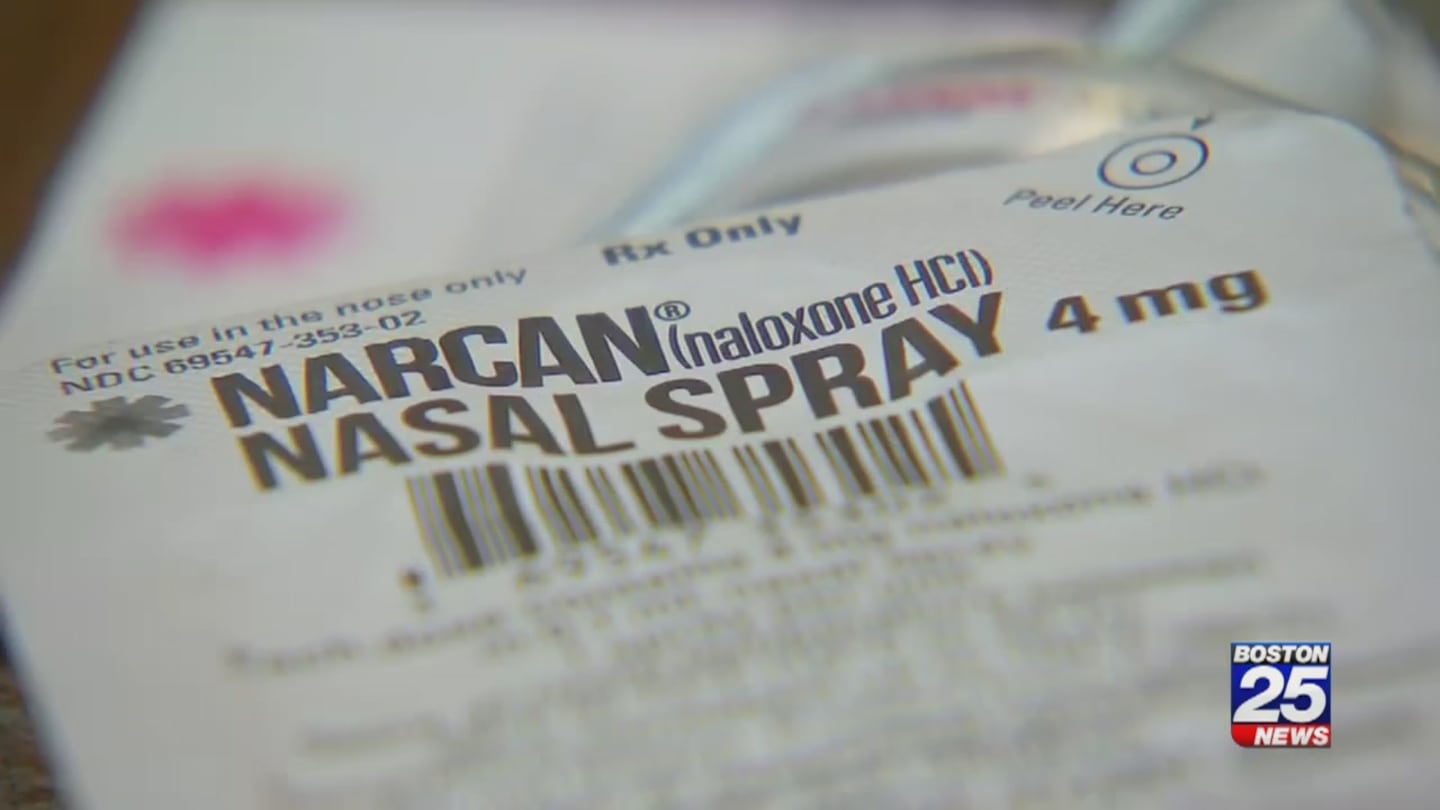BOSTON — New data shows a “significant decrease” in opioid-related overdose deaths from May to August 2024 when compared to the same period in 2023, city health officials said Wednesday.
From May to August 2024, opioid-related overdose deaths among Boston residents were down 39% overall, Boston Public Health Commission officials said.
The greatest decreases were seen among Black and Latinx residents, who saw a 56% and 28% decrease in overdose deaths, respectively, officials said.
The new analysis is preliminary and represents only a portion of 2024, but city health officials called it an encouraging sign of progress.
“The use of evidence-based strategies, including increasing access to naloxone, decreasing substance use stigma, and expanding mobile outreach has played an integral part in continuing this promising trend,” Boston Public Health Commissioner Dr. Bisola Ojikutu said in a statement.
“To maintain this momentum, it is imperative that we continue to provide our communities with resources, support, and education to make lasting progress in the fight against substance use and overdose,” Ojikutu said.
According to the Commission’s Live Long and Well population health equity agenda, unintentional drug overdose is the leading cause of early death in Boston, and it disproportionately impacts Black and Latinx communities.
Black and Latinx residents account for 40% of Boston’s total population, but from May to August 2024, they accounted for 52% of all overdose deaths.
The Commission is also evaluating various factors that contribute to the decline in overdose deaths, such as increasing access to naloxone, a medication that quickly reverses an opioid overdose, officials said.
In 2024, the Health Commission distributed nearly 22,000 doses of naloxone across Boston.
The Health Commission also launched a campaign to educate the public about ways to protect loved ones from overdose and granted $1 million in funding to five community organizations to distribute naloxone, provide overdose education, and link people to care.
Recently, city officials installed four public health vending machines across the city and eight indoor naloxone distribution kiosks.
Those locations, as well as other places that offer free or over-the-counter naloxone, can be found using the map at boston.gov/naloxone. Organizations can also request free naloxone at that website.
“Having naloxone means you are prepared for when emergencies happen, which is especially important if you know your loved ones use substances,” Leah Randolph, executive director and co-owner of Commonwealth Mental Health & Wellness Center and leader of the Massachusetts Black Alcohol and Addictions Council, said in a statement.
“Naloxone saves lives, and ensuring more people have access to it is a critical step in combating the overdose crisis,” Randolph said. “However, we must also prioritize training in highly impacted communities to ensure everyone knows how and when to use this life-saving resource effectively.”
The Commission’s Recovery Services Bureau continues to provide outreach, treatment and programs in the community.
The Bureau’s Post Overdose Response Team, comprised of harm reduction specialists and first responders, conducts in-person, home-based outreach after 911 overdose calls, and offers support, education, and referrals to resources, officials said.
In 2024, the team completed 285 visits, officials said.
The Health Commission has been steadily increasing prevention services throughout Boston by expanding community outreach, housing and mental health services, harm reduction, and support groups, health officials said.
Harm reduction and treatment referrals are available through the Commission’s AHOPE and PAATHS programs.
AHOPE offers lifesaving harm reduction services including syringe exchange; drug checking to identify the presence of fentanyl and xylazine; naloxone distribution; and screening for HIV, hepatitis, and other bloodborne illnesses that can be spread through intravenous drug use, officials said.
The PAATHS program connects people to a variety of treatment services including detox, medication for opioid use disorder, and outpatient treatment programs.
For support with substance use disorders, call the PAATHS program at 1-855-494-4057 or call 3-1-1.
For more information, visit boston.gov/recovery.
This is a developing story. Check back for updates as more information becomes available.
Download the FREE Boston 25 News app for breaking news alerts.
Follow Boston 25 News on Facebook and Twitter. | Watch Boston 25 News NOW
©2025 Cox Media Group








